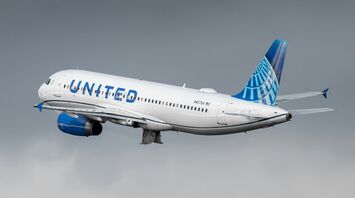FAA and EASA Warn Against Flights Over Iranian Airspace Amid Escalating Middle East Conflict

As the conflict in the Middle East intensifies, the Federal Aviation Administration (FAA) and the European Union Aviation Safety Agency (EASA) have both issued warnings against operating flights over Iranian airspace. In response to the heightened military activities in the region, both organizations are taking preventive measures to ensure the safety of civil aviation.
FAA Extends Airspace Ban
On October 3, 2024, the FAA extended its ban on US airlines and operators using Iranian airspace for another three years, lasting until October 31, 2027. This decision applies to all US commercial airlines, FAA-certified pilots (except when operating US-registered aircraft for foreign airlines), and US-registered aircraft. The extension is in place due to "significant unacceptable safety-of-flight risks" in the Tehran Flight Information Region (FIR) amid increased regional tensions.
The FAA referenced the tragic downing of Ukrainian International Airlines flight PS752 in 2020, which was shot down by Iranian forces during a period of heightened military tension, resulting in the loss of 176 lives. The FAA’s ruling aims to prevent such incidents from happening again.
EASA Issues Conflict Zone Information Bulletin (CZIB)
On October 2, 2024, EASA issued a Conflict Zone Information Bulletin (CZIB) recommending that all EU-regulated airlines and operators avoid flying through Iranian airspace. This recommendation followed Iran’s missile attack on Israel and remains valid until October 31. EASA is closely monitoring the situation to assess any changes in risk for European aircraft operators.
EASA has also advised airlines to avoid Israeli airspace due to the ongoing conflict between Israel and Hezbollah, backed by Iran. While the Civil Aviation Authority of Israel is managing risks to aviation, the escalating conflict still presents significant dangers to civil aircraft.
Recent Escalations in the Region
On October 1, 2024, Iran launched around 180 ballistic missiles toward Israel, following the killings of Hamas leader Ismail Haniyeh and Hezbollah leader Hassan Nasrallah earlier in the year. Israel successfully intercepted the missiles using its advanced air defense systems, with Prime Minister Benjamin Netanyahu warning that Iran had made "a big mistake" and would face consequences for its actions.
Despite the ongoing conflict, Israeli startup airHaifa launched its first commercial flight from Tel Aviv to Eilat on September 30, showing that some sectors of Israeli aviation are still operational.



















